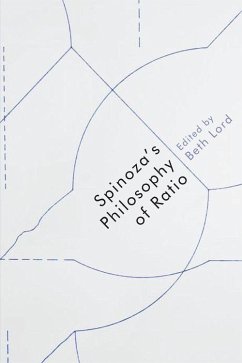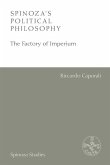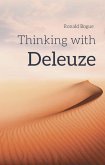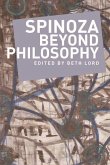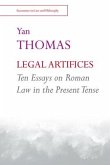'Readers will learn from this book that a philosophy of ratio is not to be conflated with a rationalist philosophy. The authors draw on the three senses of ratio - reason, relation and proportion - to explore their interdependence and, crucially, the emergent and constructed conatus towards equality and wellbeing. This valuable book demonstrates that empiricism and rationalism need not be opposed.' Andrej Radman, Delft University of Technology 'This volume represents an important collective re-thinking of Spinoza's key concept of ratio. Along with new interpretations of his treatment of the relations between reason and emotion, it offers fascinating insights into the relevance of his philosophy for understanding contemporary issues in relation to artistic practice, architecture and the built environment.' Genevieve Lloyd, University of New South Wales Discover Spinoza's philosophy of ratio, from geometry and reason to bodies, affects and architecture The word ratio means reason, relation and proportion: concepts at the heart of Spinoza's philosophy. From his geometrical method to his theory of mind and body and from his account of the emotions to his doctrine of how to live well, Spinoza's philosophy is a philosophy of ratio. This book explores the varied dimensions of this keystone of Spinoza's thought. Eleven chapters by prominent authors take you from the geometrical foundations of reasoning to the biologised mind, affective architecture, societal wellbeing, the harmonious cosmos and beyond. Beth Lord is Reader in Philosophy at the University of Aberdeen. Cover image: Wall Drawing #122 (detail): as installed at Paula Cooper Gallery, NY, May 2011. First Drawn by: Sol LeWitt, Steve Ringle. Drawn by: Sachiko Cho, Brianne Caitlin Doak, Lacey Fekishazy, Clinton King, Hidemi Nomura © 2017 The LeWitt Estate / DACS. Courtesy Paula Cooper Gallery, New York. Photo: Cathy Carver Cover design: [EUP logo] edinburghuniversitypress.com ISBN 978-1-4744-2043-3 Barcode
Hinweis: Dieser Artikel kann nur an eine deutsche Lieferadresse ausgeliefert werden.
Hinweis: Dieser Artikel kann nur an eine deutsche Lieferadresse ausgeliefert werden.

